SAMHSA Updates OTP Regulations
Updated Feb. 2, 2024
The Substance Abuse and Mental Health Services Administration published Medications for the Treatment of Opioid Use Disorder late yesterday for public inspection. The final rule was published earlier today and becomes effective on April 2, 2024, with compliance by October 2, 2024. [Please note that this is a correction of the compliance date of October 2, 2026 that was published yesterday in the public notice.] NABH provided comments on the Notice of Proposed Rule Making that was issued in December 2022 calling for greater regulatory flexibility for opioid treatment programs (OTPs).
The final regulations align closely to NABH recommendations and herald greater deference to clinical decision-making in the nation’s (OTPs). Among the provisions, the regulations:
- Make permanent the Covid-era take-home schedule;
- Permit methadone for new patients via audio-visual telemedicine with the dispensing of medication at the OTP (not audio-only).
- Permit audio-only telemedicine when the patient is in the presence of a practitioner who is registered to prescribe SII, including dispensing.
- Clarify (in response to NABH off-line discussion and official comments) that the prescription of methadone to community pharmacies is NOT permitted;
- Change the requirement for a one-year history of OUD for eligibility so that now either the patient must a) meet diagnostic criteria for moderate-severe OUD, or b) be in OUD remission, or c) at high risk for overdose;
- Remove the requirement for two treatment failures for people under 18 to be eligible for services;
- Remove requirement for a one-year history of OUD for people recently released from a correctional facility, pregnant patients, or previously enrolled individuals;
- Allow medication units to provide all OTP services;
- Decouple medication and attendance at counseling services;
- Permit interim treatment for 180 days, including at for-profit OTPs;
- Permit mid-levels (“…those appropriate licensed by the state”) to prescribe without exemption;
- Clarified accreditation standards to reduce potential for a burdensome increase in less-than 3-year accreditations;
- Permit buprenorphine prescribing in an OTP via audio-only and audio-visual without an in-person evaluation; and
- Update terminology to reflect contemporary, non-stigmatizing language.
The final rule additionally codifies the Consolidated Appropriations Act, 2023 elimination of the Drug Addiction and Treatment Act (DATA) Waiver by removing all relevant language.

